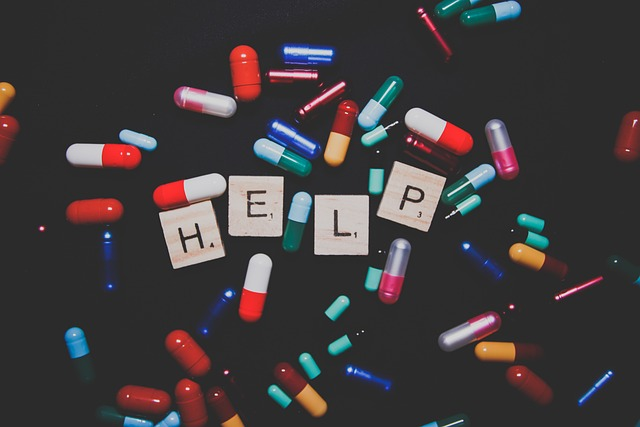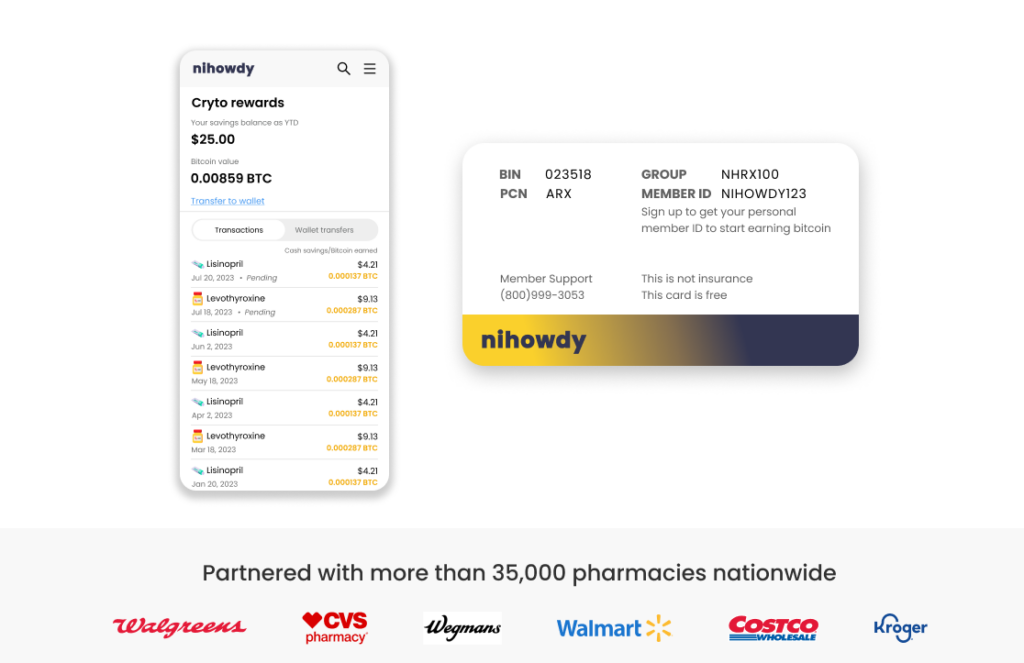Does Lexapro Cause Weight Gain? Unpacking the Evidence and Tips to Counter It

Wondering if Lexapro could tip the scales? You’re not alone. Many people ask ‘does lexapro cause weight gain?’ We dive straight into the heart of the matter, unpacking the relationship between Lexapro and your weight, without circling around the answer. Keep reading to find clear, evidence-based insights along with practical advice for managing your health.
Key Takeaways
- Lexapro (escitalopram) can influence body weight by altering serotonin levels, which may increase appetite and slow metabolism, leading to potential weight gain.
- Individual responses to Lexapro vary, with some experiencing weight gain and others losing weight, influenced by dosage, lifestyle, and genetic factors.
- Managing potential weight gain while on Lexapro includes regular exercise, healthy dietary choices, and consulting healthcare providers for personalized advice and alternative treatment options.
Understanding Lexapro and Its Effects on Weight

Escitalopram, widely recognized as Lexapro, is routinely dispensed to alleviate the effects of depression and anxiety. This medication’s fundamental role involves normalizing serotonin balance within the brain – a neurotransmitter integral to regulating:
- mood
- sleep patterns
- appetite control
- various other physiological operations
Nevertheless, in its quest to quell symptoms of depression and anxiety, Lexapro might simultaneously interfere with your weight profile. Its impact on serotonin can subtly alter your eating behaviors, possibly precipitating fluctuations in weight. Interestingly enough, this alteration does not manifest uniformly. Some individuals may encounter weight gain whereas others could notice a decrease in their body weight.
It’s quite fascinating how these divergent responses occur among different people—isn’t it? Let’s delve deeper into what underpins these disparate outcomes when using Lexapro.
The Science Behind Lexapro
The influence of Lexapro on weight is fundamentally linked to its role in modulating serotonin levels. What’s the mechanism? By blocking the reabsorption process via the serotonin transporter, Lexapro raises brain serotonin concentrations. While this elevation is beneficial for controlling depression and anxiety, it can also impact body weight through heightening hunger and decelerating metabolic rate – conditions conducive to potential weight gain.
As Lexapro elevates your spirits, it may simultaneously enhance your desire to eat. This heightened appetite paired with a reduced metabolic speed could result in persistent extra calories from indulgences like additional pizza slices transforming into surplus weight.
Weight Gain vs. Weight Loss: Individual Responses to Lexapro
Understanding that Lexapro could potentially result in weight gain, you may question if this implies universal weight increase among those on the medication. It’s not a given for everyone. The interaction between taking Lexapro and changes in body weight is intricate, with personal reactions differing substantially.
For example, individuals on average may experience less than 0.5% of their body weight increasing when they are taking Lexapro—yet even this might fluctuate due to variables such as dosage level, inherent individual variances, and genetic predispositions. Consequently, some people might notice an uptick in their scale readings while others could actually see numbers indicative of weight loss—it really varies person to person.
The Causes of Lexapro-Induced Weight Gain

A considerable number of people who take antidepressants, including Lexapro, often worry about the potential increase in weight associated with these medications. It is a frequently observed complication and should be addressed by consulting a healthcare professional. Indeed, around 65% of those on antidepressant medication experience an increase in weight. Specifically for Lexapro users, approximately 40% may notice a notable rise in their body mass index (BMI), underscoring the genuine concern over lexapro and weight gain. Hence, recognizing the likelihood of gaining weight while using Lexapro is crucial when initiating treatment.
But what are the underlying causes? The reasons behind gains in lexapro weight mainly stem from two factors: how serotonin influences appetite and metabolism along with various lifestyle-related elements that might contribute as well. To fully comprehend why this happens, it’s important to explore each contributing factor individually.
Serotonin’s Role in Appetite and Metabolism
Previously, we discussed how Lexapro is capable of elevating serotonin levels, which may subsequently impact our appetite and metabolic functions. To understand the mechanism behind this:
The blockade of the serotonin transporter by Lexapro results in elevated concentrations of serotonin. This rise in serotonin correlates with several outcomes.
- a boost in hunger
- possible accumulation of weight
- a preference for carb-rich foods
- augmented caloric consumption
Peripheral increases in serotonin can affect our body’s ability to store energy by promoting lipid synthesis within tissues, thereby enhancing the efficacy with which our bodies reserve energy.
Lifestyle Factors and Lexapro
Besides the influence of serotonin, lifestyle choices can Aggravate weight gain when taking Lexapro. A sedentary lifestyle, characterized by low physical activity, could worsen the metabolic shifts and heightened appetite that come with medication use.
Those who smoke while on Lexapro might notice several issues.
- Weight gain may occur as a result of how the drug interacts with metabolic changes linked to quitting smoking.
- Staying physically active might become more difficult for individuals on Lexapro.
- There may be an uptick in carbohydrate cravings which can lead to additional weight gain.
Managing Weight Gain While on Lexapro

Recognizing the roots of weight gain associated with Lexapro, we can now delve into actionable steps to control it. It’s imperative to balance the advantages gained from Lexapro in alleviating depression and anxiety while mitigating concerns over potential increases in weight.
To tackle this, three central strategies are crucial for preventing unwanted weight accumulation: maintaining a routine of physical activity, cultivating nutritious eating patterns, and seeking guidance from healthcare professionals. Incorporating consistent exercise regimes, embracing diversity within your diet, and conversing openly with your healthcare provider about these issues play a pivotal role in managing any prospective weight gain effectively.
Exercise and Physical Activity
Initially, maintaining an active lifestyle through consistent physical activity is essential in controlling body weight and facilitating weight loss. Engaging in straightforward activities such as a daily 30-minute walk can profoundly influence your body weight, potentially leading to noticeable changes. Regular exercise offers additional health advantages that include enhanced mood and improved heart health.
It’s important to note that the frequency of your workouts often trumps their intensity when aiming for sustained results. Hence, it’s beneficial to identify a form of exercise you enjoy — be it dance, bike riding or practicing yoga — and integrate this into your everyday schedule.
Nutritional Choices

Your dietary habits play a crucial role in the control of your weight. Opting for a diet filled with natural foods is instrumental for effective weight management. To maintain a healthy diet, here are several recommendations.
- Incorporate an abundance of fruits and vegetables
- Opt for lean proteins such as chicken, fish, and tofu
- Make sure to eat whole grains like brown rice and quinoa
- Limit intake of processed foods along with sugary treats and high-calorie drinks which can lead to unwanted weight gain.
It might be advantageous to engage in dietary counseling coupled with hands-on guidance on how to cook healthily and shop effectively. This type of non-medical strategy may prove exceptionally helpful for individuals managing their weight who also face challenges related to mental health conditions.
Consulting Your Healthcare Provider
It’s essential not to downplay the importance of involving your healthcare provider when it comes to weight changes. Should you experience swift or substantial weight gain while taking Lexapro, promptly bringing this to your doctor’s attention is critical, given the potential health consequences associated with gaining weight.
In instances where managing one’s weight becomes a challenge due to how antidepressants affect weight, your healthcare provider can recommend modifications in medication and explore other treatment options. They are also equipped to offer tailored recommendations for coping with notable shifts in body mass as a result of using antidepressant medications.
Lexapro Alternatives for Weight-Conscious Individuals

Should you be worried about the potential for weight gain associated with Lexapro, it may be comforting to know that there are other antidepressants less likely to contribute to weight increase and various non-drug strategies for managing mental health.
Before making changes to your current medication regimen or pursuing alternative therapies, it is crucial that you consult with your healthcare provider. They are equipped to offer important advice and support in helping you choose the wisest course of action.
Antidepressants with Lower Weight Gain Risks
Some antidepressants, such as Wellbutrin (bupropion), Prozac (fluoxetine), and Cymbalta (duloxetine), are associated with a lower risk of weight gain compared to Lexapro. The tendency of these medications to suppress appetite may be advantageous for individuals worried about putting on extra pounds.
The choice to switch to antidepressants must be undertaken with guidance from your healthcare provider. They will evaluate your specific symptoms and overall health status in order to assist you in selecting the most appropriate medication for your needs.
Non-Medication Approaches to Mental Health
Non-pharmacological methods such as counseling, stress-reducing activities such as meditation or yoga, and some natural supplements can assist in controlling the symptoms of depression without contributing to weight gain.
While these strategies are beneficial for treating symptoms of depression and enhancing general health, it’s crucial to recognize that they should augment rather than substitute prescribed medication unless your healthcare provider has given specific guidance to do so.
The Benefits of NiHowdy’s Prescription Discount Card
While dealing with the challenges of weight management on Lexapro, it’s equally important to consider the financial aspects of healthcare. This is where NiHowdy’s Prescription Discount Card becomes valuable. It provides clear pricing information for drugs and enables users to compare prices across different pharmacies nearby, ensuring immediate discounts at outlets that accept the card.
Those who use this discount card can receive up to 3% back in Bitcoin with each prescription they buy. This not only gives instant gratification, but may also lead to significant growth in value over time. Such rewards can help alleviate overall healthcare expenses and contribute towards greater economic advantages in the future.
How NiHowdy Can Help Offset Healthcare Costs
The NiHowdy Prescription Discount Card offers consumers an opportunity to reduce their medical expenses through established price negotiation agreements with both pharmacies and pharmaceutical companies. This card yields significant discounts on the cost of medications, ensuring customers save money effortlessly. It is user-friendly and widely accepted at a multitude of pharmacy locations.
By consistently leveraging the financial advantages provided by NiHowdy’s prescription card, individuals can effectively navigate and alleviate the monetary strain brought about by escalating healthcare prices or other substantial life costs. Such sustained usage reinforces the economic advantage for those who possess the card.
Summary
Navigating the world of Lexapro and weight can be complicated, but it doesn’t have to be overwhelming. By understanding the science behind Lexapro and its effects on weight, incorporating regular exercise and a balanced diet, and consulting with healthcare providers, you can effectively manage potential weight gain. Remember, there are alternatives available if you’re concerned about weight gain while on Lexapro. And with tools like NiHowdy’s Prescription Discount Card, you can also manage your healthcare costs effectively. So, take charge of your health and your life – you’ve got this!
Frequently Asked Questions
Can Lexapro cause weight gain?
Indeed, Lexapro has the potential to cause weight gain as it may elevate hunger and decelerate metabolic processes, though this adverse effect does not occur in all individuals.
Are there alternatives to Lexapro that do not cause weight gain?
Indeed, options like Wellbutrin, Prozac, and Cymbalta are recognized for having a reduced tendency to induce weight gain compared to Lexapro, providing choices that are less likely to be associated with an increase in weight.
What can I do to manage weight gain while on Lexapro?
In order to control weight gain when taking Lexapro, it is essential to maintain an active lifestyle, consume a diet rich in whole foods that are balanced, and seek tailored advice from your healthcare provider.
By following these measures, you can preserve a healthy weight during the course of treatment with this medication.
Can lifestyle factors affect weight gain while on Lexapro?
Yes, a sedentary lifestyle and smoking can exacerbate Lexapro-induced weight gain.
Being physically active and avoiding smoking can help manage weight while on Lexapro.
How can NiHowdy’s Prescription Discount Card benefit me?
The Prescription Discount Card from NiHowdy can be advantageous to you through its clear medication pricing, on-the-spot discounts at network pharmacies, and an opportunity to receive as much as 3% back in Bitcoin with every prescription transaction. This facilitates not only immediate healthcare savings, but also provides enduring economic advantages.
Ensure you don’t forego the chance for possible cost reductions!


